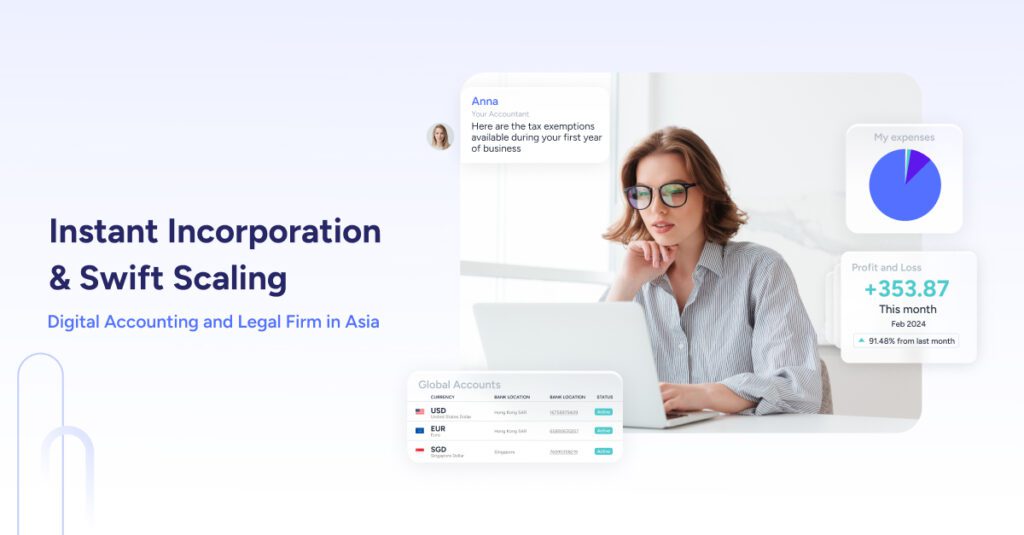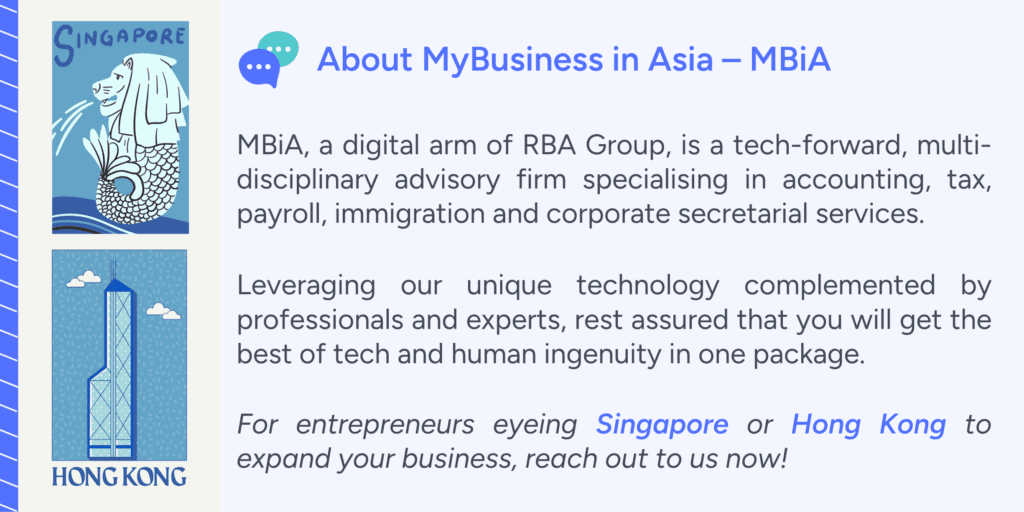In Singapore, choosing a suitable Financial Year End (FYE) or Fiscal Year End is essential for companies to align with their operational and reporting requirements effectively.
After incorporating in Singapore, a company must choose a FYE. A Financial Year End (FYE) can align with various periods, such as the 12-month calendar year, financial quarter-ends, the company’s incorporation anniversary, seasonal cycles, or specific business cycles.
In this article, MyBusiness in Asia will explore the importance of selecting an appropriate Financial Year End (FYE) for a company and the key factors to consider in making this decision.
Overview:
- What is a business FYE and why is it important?
- How to choose your company’s FYE
- How to change your FYE
- IRAS Requirements for Fiscal Years
- Let MyBusiness In Asia help
- Summary
What is a business FYE and why is it important?
Simply put, the Financial Year End (FYE) marks the last day of a company’s accounting period, recurring every 12 months. In Singapore, the Companies Act does not mandate a specific FYE date, allowing businesses the flexibility to choose their own.
The FYE is crucial for meeting key legal requirements, such as filing annual returns with the Accounting and Corporate Regulatory Authority (ACRA) and submitting corporate tax returns with the Inland Revenue Authority of Singapore (IRAS). It also sets the cut-off for important business activities, including:
- Estimated Chargeable Income (ECI) filings: An estimate of taxable profits for a Year of Assessment.
- Annual General Meeting (AGM): Where financial statements are presented to shareholders.
- Annual Returns (AR) filing: Companies need to prepare financial accounts soon after FYE.
The chosen FYE date can also influence the types of tax exemption available to the company.
How to choose your company’s FYE
The Companies Act in Singapore outlines specific conditions for businesses when selecting their Financial Year End (FYE) as following:
- The fiscal year must start from the date of incorporation and end on the chosen FYE date.
- The first financial period should not exceed 18 months, unless special approval is granted.
- Each subsequent fiscal year must begin immediately after the previous financial year and must span exactly 12 months, unless otherwise approved by the Registrar.
Companies can adjust their Financial Year End (FYE) for the current or previous financial year if statutory deadlines remain open. Common choices for FYE are 31st December, 31st March, or 30th June. However, selecting a date involves more than simply choosing one that’s easy to remember – it’s essential to consider the company’s specific financial and operational needs.
To maximize company tax exemptions, MyBusiness in Asia recommends choosing your Financial Year End (FYE) strategically rather than opting for an easily remembered date. Ideally, set the first assessment period to be as long as possible within the initial 12 months for optimal benefits.
For example:
- Your company’s incorporation date: 10 August 2024
- Add one year to it: 10 August 2025
- Subtract a month: 10 July 2025
- Pick the last day of that month as your company’s FYE: 31 July 2025
How to change your FYE
To change its Financial Year End (FYE), a company must notify ACRA through the BizFile+ portal, free of charge. The FYE can only be adjusted for the current or previous financial year.
However, changes are not permitted if statutory deadlines for the Annual General Meeting (AGM), Annual Returns filing, or financial statement submission have passed. Additionally, approval from ACRA is required if the FYE was changed in the last five years or if the change would extend the financial year beyond 18 months.
IRAS requirements for fiscal years
In Singapore, the Inland Revenue Authority of Singapore (IRAS) manages annual tax filing requirements, and companies must consider the following for fiscal years:
- Fiscal Tax Year: Companies choose their fiscal tax year, which doesn’t have to align with the calendar year. The start and end dates are flexible within the tax year.
- Consistency: Once set, the fiscal year is expected to remain stable. Changing it may need IRAS approval and requires valid reasons.
- Duration: Typically, the fiscal year spans 12 months, but a first fiscal year may vary based on incorporation date.
- Filing Deadlines: Submission deadlines for financial statements, annual reports, and tax filings depend on the fiscal year-end. IRAS specifies due dates, and companies must meet these to ensure compliance.
- Tax Assessments: After filing, IRAS assesses tax payable based on the submitted financials. Discrepancies could lead to audits or reviews.
Staying informed about IRAS requirements and deadlines is essential for compliance. Consulting accounting professionals or IRAS directly can provide guidance for any specific needs.
Let MyBusiness In Asia help

Simplify your Financial Year End (FYE) management by letting MyBusiness In Asia handle the details for you. We’ll take care of document collation, legal compliance, and strategic decisions, allowing you to focus on your core business. Avoid the hassle, ensure smooth operations, and make cost-effective choices effortlessly. Contact us today to get started!
Summary
In short, your Singapore company’s financial year end can be tailored to suit your unique needs—that’s one of the many advantages of incorporating a business in this incredible country! Consider your industry, your incorporation date, and what timing works best for your operations. For expert guidance on setting up the right financial year end, reach out to one of our advisors.
You might also be interested
- Good accounting practice for the end of your financial year
- How to file Financial Statements in XBRL format?
- Accounting services in Singapore


